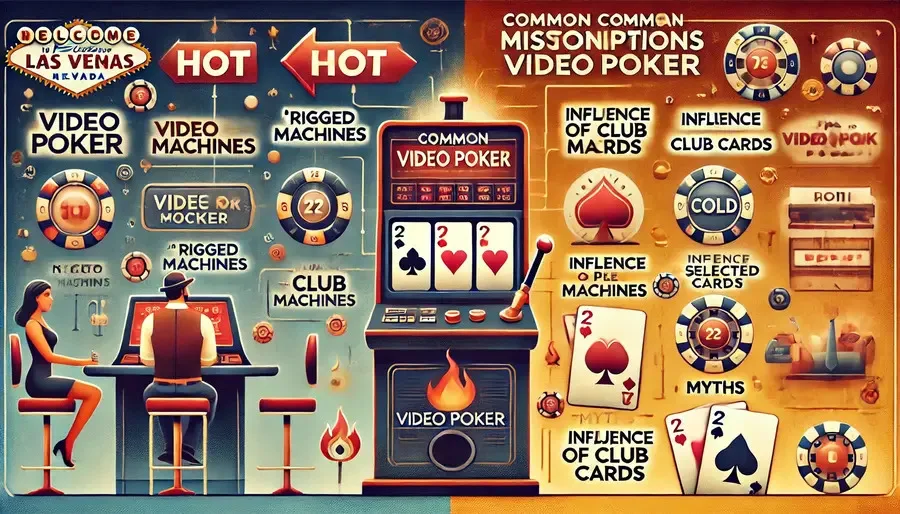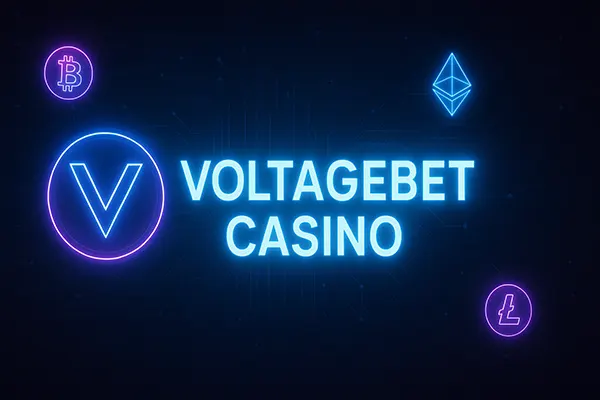
Misconceptions about Video Poker
Video poker is a popular casino game that combines elements of both slot machines and traditional poker. Its appeal lies in the blend of luck and skill, offering players a unique gaming experience. Despite its popularity, many misconceptions surround video poker. This article aims to clarify these misunderstandings and provide a clearer understanding of the game.
The Main Things About Video Poker
Video poker is a digital version of five-card draw poker. Unlike slot machines, video poker involves a degree of skill, as players can influence the outcome by making strategic decisions about which cards to hold or discard. The game is played on a machine similar to a slot machine, but the gameplay and odds are based on poker hand rankings.
Mistaken Assumptions About Video Poker
“Hot” and “Cold” Machines
One common misconception is that video poker machines can be “hot” or “cold.” Players often believe that a machine that has recently paid out a large win is “cold” and unlikely to pay out again soon, while a “hot” machine is one that has not paid out for a while and is “due” for a win. In reality, video poker machines use random number generators (RNGs) to ensure each hand is independent of the previous ones, making the concept of hot or cold machines a myth.
“Loaded” Video Pokers
Another fallacy is the idea that video poker machines can be “loaded” or rigged by the casino to prevent players from winning. While it’s true that the house has an edge, video poker machines are regulated to ensure fair play. The RNG technology ensures that each hand is random and that the odds are consistent with the pay tables displayed on the machine.

The Influence of Club Cards on Gameplay
Many players believe that using a club card (a loyalty or membership card) can influence their chances of winning. Some think that the casino might alter the odds based on their loyalty status. However, the use of a club card does not affect the RNG or the outcome of the game. Club cards are simply tools for tracking play to award points and comps, and they do not alter the machine’s operation.
Faith in Anticipation
Players sometimes hold the belief that they can anticipate the outcome of their hands based on patterns they observe. For example, a player might think they can predict when a certain card will appear. Since each hand is randomly generated and independent of previous hands, this belief is unfounded.
Pre-selected Cards for Exchange
There is also a misconception that video poker machines predetermine which cards will be drawn once the player chooses which ones to discard. In truth, the cards are dealt randomly, and the machine does not pre-select replacement cards. The RNG ensures that the draw is fair and random.
Programmed Stripes
Some players believe in “programmed stripes,” where the machine is set to produce a series of winning and losing hands. This belief is incorrect as video poker machines operate on RNGs, making each hand completely random and independent.
Changing Machines in Search of Luck
A common strategy among players is to switch machines after a series of losses, in the hope that a different machine will be luckier. However, since each machine operates independently with its RNG, moving to a different machine does not increase the chances of winning.
A Special Strategy for Video Poker with Multiple Lines
Some players believe that multi-line video poker requires a completely different strategy compared to single-line play. While the dynamics of multi-line play can differ, the basic strategy for deciding which cards to hold or discard remains largely the same. Understanding pay tables and optimal strategy is crucial regardless of the number of lines played.
Anyone Can Make a Living Playing Video Poker
Finally, there’s a widespread myth that anyone can make a living playing video poker. While it is possible for skilled players to have an edge over the house in certain games with optimal play and proper bankroll management, making a consistent living solely from video poker is extremely challenging. It requires a deep understanding of strategy, discipline, and often a significant amount of time and money.
Understanding the realities of video poker is crucial for anyone looking to enjoy this popular casino game. Dispelling these common misconceptions can lead to a more informed and enjoyable gaming experience. Remember, video poker is a game of skill and chance, and while strategy can improve your odds, the RNG ensures that each hand is random and fair.
-
 Casino Games With Skill Elements: Facts Versus Misconce...
Casino Games With Skill Elements: Facts Versus Misconce...Debates about whether skill plays a meaningful role in certain …
12/02/2025See more -
 How to Choose a New Casino in 2025: A Detailed Review T...
How to Choose a New Casino in 2025: A Detailed Review T...The rapid growth of licensed online gambling environments in 2025 …
11/13/2025See more -
 VoltageBet Casino Review: Crypto Orientation, Innovatio...
VoltageBet Casino Review: Crypto Orientation, Innovatio...VoltageBet Casino stands out in 2025 as one of the …
10/20/2025See more
